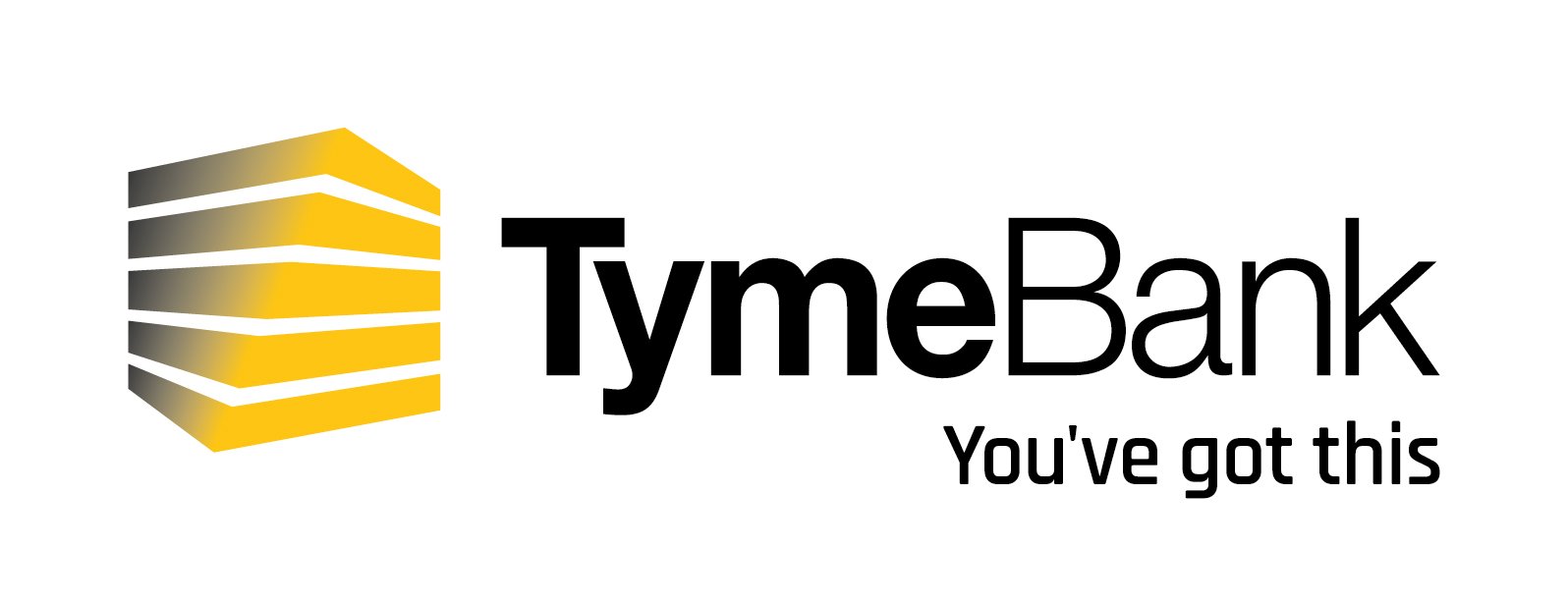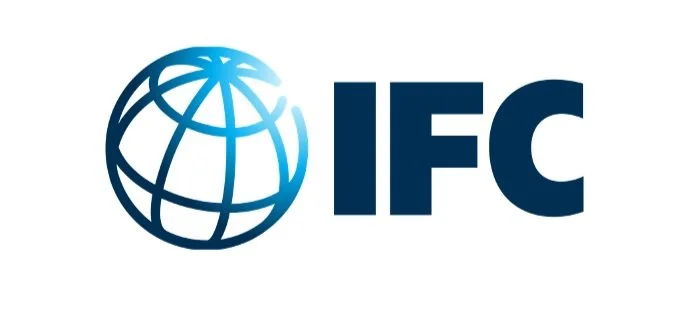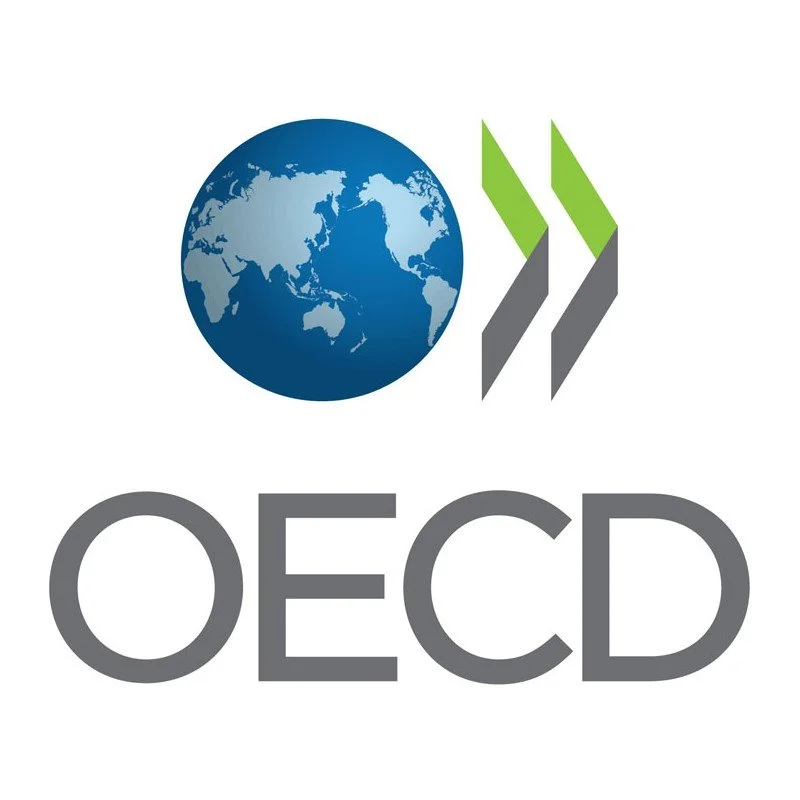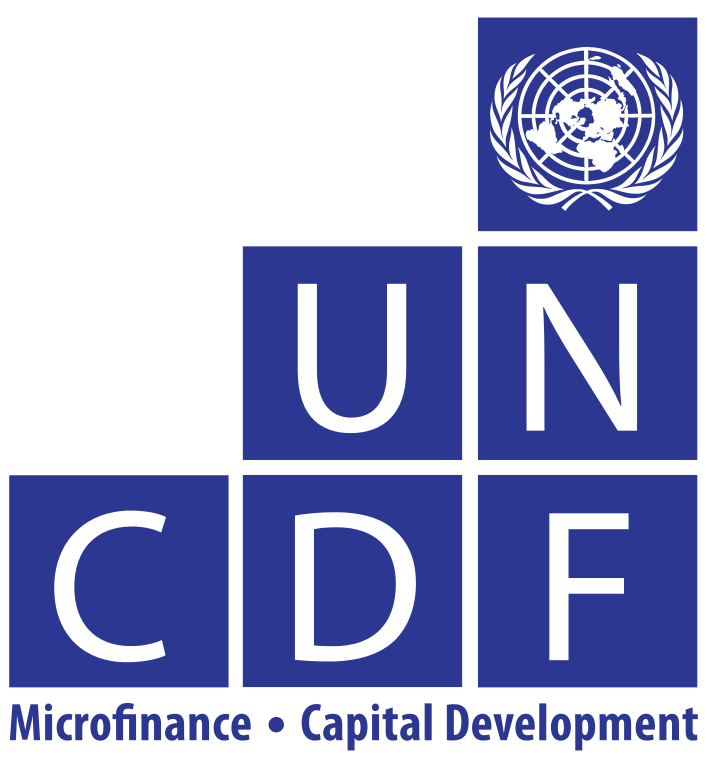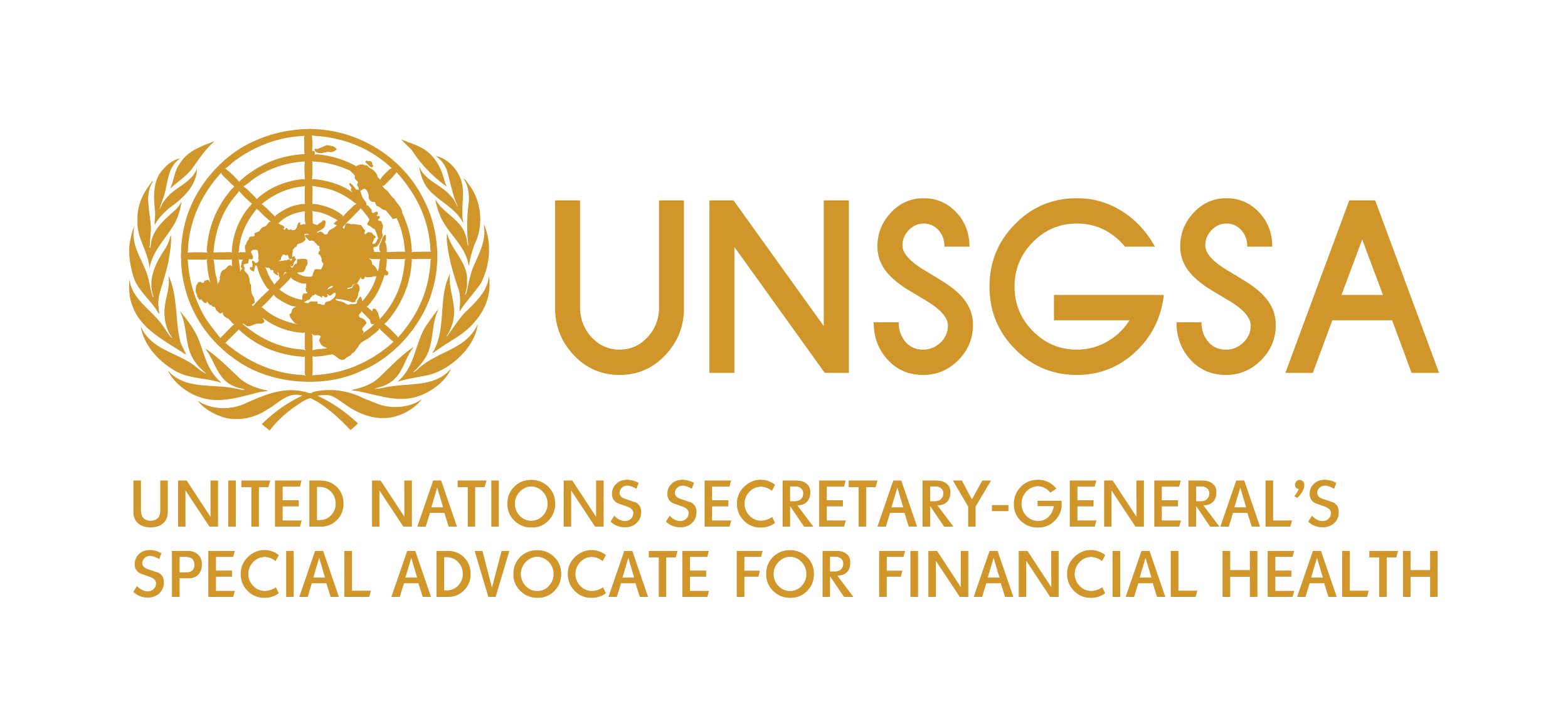
Responsible Finance Forum 2025
Embedding Consumer Protection to Drive Responsible Outcomes
Johannesburg, South Africa
May 20-22, 2025
Thank you for joining us in Johannesburg!
As the official side event to the G20 Global Partnership for Financial Inclusion, RFF 2025 brought together a diverse range of over 180 regulators, policymakers, financial service providers, consumer advocacy groups, and technology providers. Through three days filled with panel discussions, deep conversations, and field visits to market providers, RFF attendees collaborated and ideated on how the financial inclusion sector can better focus on outcomes for consumers.
As key stakeholders in the inclusive finance sector, our focus has been on prioritizing consumer protection in the design and delivery of financial services, particularly as we transition from access to usage. In an increasingly uncertain world, our ambition to drive responsible outcomes for consumers includes reaching newly included, underserved, and vulnerable groups, helping them build financial resilience to withstand the impact of global changes.
Driven by geopolitical and economic forces, we foresee an environment of uncertainty that will impact the sector, placing greater pressure on funders, donors, and investors. As a result, there will be an increased emphasis on measuring outcomes and assessing the impact of every dollar flowing into the sector. In this environment, it is easy to lose sight of the importance of consumer protection, especially when it is seen merely as compliance or a "nice-to-have." However, we argue that investing in consumer protection is critical for long-term business value. Poor consumer protection leads to low trust, which can undermine business value and weaken the financial system overall. As we bridge the gap from access to usage, it becomes even more essential to protect newly included and vulnerable consumers, ensuring their financial well-being improves.
Achieving the goal of embedding consumer protection for responsible outcomes requires effective coordination among all stakeholders involved in financial inclusion—across and within jurisdictions. This includes regulators, policymakers, financial services providers, consumer advocacy groups, technology providers, and others. We must recognize the complex and interconnected nature of financial systems and consumer behavior, particularly as reliance on global cloud computing, complex algorithms, and digital infrastructure grows. The risks we face today require agile, coordinated responses at both global and local levels.
South Africa’s G20 presidency presents a historic opportunity to focus on a country and a continent poised to play a crucial role in the global economy. The continent shares several common assets—high social mobility, an entrepreneurial spirit, innovation, and cultural and linguistic diversity—that present the potential to outpace the rest of the world. South Africa, with its vibrant economy and active participation from both government and the private sector, has seen significant progress in financial sector growth, fintech, and regulatory innovation. This positions South Africa as a bridge builder, advancing the interests of Africa in global markets and dialogue.
However, like many countries, South Africa is grappling with inflationary pressures that are eroding the financial health of individuals and making it increasingly difficult to meet basic financial obligations. This is compounded by high unemployment rates and a high Gini coefficient, making South Africa one of the most unequal economies globally. The solutions developed to address these challenges could provide valuable insights for Africa and other countries worldwide.
We hope that the discussions at RFF 2025 will lay the foundation for tackling these challenges, identifying opportunities, and exploring solutions to the complex risks facing the world today.
Embedding Consumer Protection to Drive Responsible Outcomes
Globally, investments in digital infrastructure and innovations in the design and delivery of financial services resulted in expanding access to financial services for nearly 1.1 billion people between 2011 and 2021. However, by the end of 2021, around 1.4 billion people continued to remain unserved by formal financial services, a number that we anticipate should have decreased, pending the results of the next Findex survey.
Agenda Overview
Welcome to RFF 2025
Day 0: Tuesday, May 20
15:30 - 17:00
Registration
FinScope Consumer South Africa 2024 Results Launch
17:00 - 18:30
FinScope is recognised as the gold standard and leading source of data-driven insights on financial inclusion. Initiated by FinMark Trust in 2003, FinScope Consumer South Africa is supported by a unique syndication funding model. This annual survey has become an essential resource for regulators, policymakers and the financial sector, enabling evidence-based decisions, innovative service design and inclusive policy development that reflects the realities of vulnerable communities in South Africa.
What will the data reveal this year? The 2024 results will highlight emerging trends, behavioral shifts, and new challenges and opportunities across the financial landscape. Join us and be part of the conversation shaping the future of financial inclusion in South Africa.
If you plan to attend the FinScope Launch, FinMark Trust has requested you complete their registration form for the launch event. You can find their registration form here: South Africa 2024 FinScope Consumer Survey Launch
Speakers:
Nontobeko Lubisi, National Treasury of South Africa
Brendan Pearce, FinMark Trust
Jabulani Khumalo, FinMark Trust
Kingstone Mutsonziwa, FinMark Trust
Pamela Ramagaga, South African Insurance Association
Jayshree Venkatesan, Center for Financial Inclusion (CFI)
18:30 - 20:30
Welcome Reception and Dinner
Achieving Responsible Financial Outcomes
Day 1: Wednesday, May 21
7:00 - 8:45
Registration and Networking
8:45 - 9:15
Speakers:
Nataša Goronja, Center for Financial Inclusion (CFI)
Jayshree Venkatesan, Center for Financial Inclusion (CFI)
MC Welcome and Introduction
9:15 - 9:30
Host Country Remarks
Speaker: Katherine Gibson, Financial Sector Conduct Authority (FSCA)
9:30 - 10:00
Speakers:
Her Majesty Queen Máxima of the Netherlands, UN Secretary-General’s Special Advocate for Financial Health (UNSGSA)
Michael Schlein, Accion
Keynote Fireside Chat
10:00 - 10:40
Coffee Break and Networking
Morning Theme: Challenges of Eroding Consumer Outcomes
The outcomes we aim to achieve for consumers using formal financial services include improving their financial health, empowering them to seize opportunities, and enhancing their resilience in the face of economic shocks. However, achieving these outcomes should not rest solely on consumers; other stakeholders in the financial system—such as financial service providers, regulators, supervisors, and policymakers—must also take responsibility. In the next three sessions, we will explore what financial health means to policymakers and private sector actors, conduct a deep dive into the challenges faced in the African context, and discuss the structural gaps in financial consumer protection that are hindering the achievement of these desired outcomes.
10:40 - 10:45
MC Framing Remarks
“Everyday, Rainy Day, One Day” - Policy, Regulator, and Private Sector Perspective
10:45 - 11:05
The Commonwealth Bank of Australia characterizes the elements underlying financial health as “Everyday, rainy day, one day.” The Office of the UNSGSA adds a fourth element - confidence. While this is true, translating this into a financial system that places the customer’s well being at its heart requires careful cooperation between multiple stakeholders and calibration of multiple factors that can interact at the individual and macroeconomic level such as ensuring there are sufficient jobs, people are paid fair wages, stable business environments with fair competition and addressing inflation besides factors like building better financial habits, so people have the ability to manage their day to day expenses, save for a rainy day and can plan to achieve future dreams confidently. This session will frame the discussions for the morning in identifying the role of policymakers and private sector actors, and identify what remains to be done to make this a reality.
Moderator: Payal Dalal, Mastercard Center for Inclusive Growth
Speakers:
Her Excellency Fatma Al Jabri, Deputy Governor of Central Bank of UAE
Magda Bianco, G20 Global Partnership for Financial Inclusion (GPFI) Co-Chair
Consumer Financial Protection as we Move from Access to Usage: Exploring the African Perspective
11:05 - 11:55
South Africa has made significant strides in enabling access to bank accounts with over 81 percent of the population having an account. While there is an increase in digital transactions, spurred by the COVID 19 pandemic, and primarily driven by the use of e-money, formal bank accounts continue to see high dormancy levels, or use as mailbox accounts i.e. with immediate withdrawal of credited funds. This pattern is echoed across other African countries, according to Finscope data.
As digital financial services have been widely adopted, the shift is accompanied by rising incidents of fraud, cybercrime and other consumer protection challenges. This reflects a rising global trend that underscores the need to integrate consumer protection in the design and delivery of digital financial services to build and sustain consumer trust.
The post-pandemic world is fraught with compound challenges such as high inflation, rising cost of living, lagging wages, food and job insecurity, all of which are likely to worsen in the face of volatile global geo-political environments. Data from the broader South African Development Community (SADC) region that includes Malawi, Swaziland, Tanzania and Zimbabwe shows at least a third of the adults are indebted, and a quarter display signs of over-indebtedness. with nearly three-quarters of adults who borrow are at risk of over-indebtedness. In most of these countries, family structures and gender roles mean that women and younger people experience the most stress.
This panel will explore the transition from access to usage across the continent, shedding light on the challenges and risks associated with declining financial health—such as rising debt stress and reduced financial resilience. It will examine the experiences of the most vulnerable populations and present the concept of "consumer protection by design," illustrated through real-world examples.
Moderator: Gerhard Coetzee, Independent Consultant
Speakers:
Christine Hougaard, Centre for Financial Regulation and Inclusion (CENFRI)
Francis Gwer, Financial Sector Deepening (FSD) Kenya
Nshuti Mbabazi, Better Than Cash Alliance (BTCA)
Client Centricity for Better Financial Health Outcomes: Addressing Structural Gaps to Prevent Over-Indebtedness
11:55 - 12:45
Credit is available faster than ever before thanks to digital channels and the rise of embedded financial products like Buy Now Pay Later (BNPL). While access to credit can be important for individuals and households, allowing them to weather unexpected storms, unfettered access can lead to debt stress. Debt stress is an indicator of poor financial health and prevents people’s ability to withstand shocks or plan for future goals, and can result in consumers making harsh choices to repay the debt they owe. The credit ecosystem is complex, and no single entity can solve the problem of debt stress. However, there are several structural factors that could help to reduce consumer harm and ensure digital credit delivers positive outcomes for consumers. For example, newer credit products like BNPL or Earned Wage Access loans are seldom reflected in consumer credit reports, or are only shown after a lag of days or weeks. Pricing information is opaque and consumers are often unaware of fees, interest rates and their rights when it comes to newer digital credit products. Debt consolidation or restructuring to provide support and alleviate debt stress are not available in some countries. Debt collection practices may not be sensitive to the current circumstances of the borrowers. And finally, commercial pressures may tempt providers to deprioritize consumer protection in the interest of aggressive sales and market growth tactics. In this session, we will explore these issues, how they contribute to debt stress and how we can begin to address them.
Moderator: Paul Adams, Innovations for Poverty Action (IPA)
Speakers:
Kennedy Kipkemboi, Global System for Mobile Communications Association (GSMA)
Juan Carlos Izaguirre, Consultative Group to Assist the Poor (CGAP)
Sarah Willis Ertur, SaverLife
12:45 - 14:00
Lunch and Networking
Afternoon Theme: Regulatory Tools to Enhance Consumer Outcomes
Building responsible finance ecosystems requires customer centric regulatory and supervisory frameworks for financial consumer protection that shift from compliance and principles based approaches to customer outcomes based approaches. The following three sessions will explore how financial sector authorities can foster outcome oriented regulatory and supervisory frameworks. We will start with the South Africa experience in developing customer outcomes oriented regulation and supervision. We will then explore how customers can have a stronger voice in the regulatory process and then discuss how suptech can support a customer outcomes oriented framework.
14:00 - 14:20
Customer Outcomes Oriented FCP Regulation and Supervision
A pre-requisite to developing an outcomes based approach to consumer protection is regulatory and supervisory framework that supports such outcomes. South Africa’s “treating consumers fairly” and the FCA UK’s consumer duty guidelines are two of the outcome based regulatory and supervisory approaches, which are designed to ensure that regulated financial institutions delivery specific, clearly laid out outcomes for the consumers who avail of their services. South Africa’s FSCA has gone deep into developing indicators that can track customer outcomes in collaboration with the financial sector. This panel will frame the discussions for the rest of the afternoon and provide a rapid introduction to the experience from the FSCA and the private sector in developing a customer outcomes regulatory and supervisory framework.
Moderator: Eric Duflos, Consultative Group to Assist the Poor (CGAP)
Speakers:
Katherine Gibson, Financial Sector Conduct Authority (FSCA)
Saku Veersamy, Nedbank
14:20 - 15:05
Elevating Voices of Consumers: Insights to Draft Regulations
South Africa’s Financial Sector Conduct Authority (FSCA) set up a Consumer Advisory Panel in consultation with the UK Financial Conduct Authority (FCA)’s Financial Services Consumer Panel. In this workshop-style session, the FSCA will illustrate how they created the advisory panel, ensuring a focus on consumer outcomes; built an effective engagement model and use the consumer panel to draft regulations that address emerging risks in a timely manner.
Moderators:
Deon Woods Bell, Gates Foundation
Eric Duflos, Consultative Group to Assist the Poor (CGAP)
Speakers:
Kershia Singh, Financial Sector Conduct Authority (FSCA)
Helen Charlton, Financial Conduct Authority (FCA) Financial Service Consumer Panel
15:05 - 15:30
Suptech to Enhance Positive Consumer Outcomes: Examples and Insights
An outcomes-based approach to regulation and supervision requires real time access to data and tools to monitor emerging risks and customer outcomes. The use of technology through Suptech tools offers new opportunities to monitor consumer experience at lower costs. This session will explore examples of Suptech tools that have been developed and areas where there is opportunity for further development.
Moderator: Eric Duflos, Consultative Group to Assist the Poor (CGAP)
Speakers:
Daniel Adjei Nyarko, Bank of Ghana
Juliet Ongwae, Cambridge Center for Alternative Finance
15:30 - 18:00
Intergovernmental Fintech Working Group (IFWG) (Note: “Visit” to be held at the Maslow.)
FinMark Trust: TIPS Project
Tyme Bank
Yoco
To learn more about this year’s field visits, please visit the Learning Partners section below.
Field Visits to Learning Partners
18:30 - 20:30
Dinner and Networking
Examining the Enabling Environment to Build Financial Resilience
Day 2: Thursday, May 22
7:00 - 8:30
Arrival and Networking
8:30 - 8:45
MC Welcome and Reflections from the Field Visits
Speaker: Nataša Goronja, Center for Financial Inclusion (CFI)
Shaping Safe DPI for Africa’s Future: Pathways for Positive Consumer Outcomes
8:45 - 9:50
Pix, Brazil’s instant payment system, has been one of the fastest adopted payment systems globally. Between January 7th and 14th this year, a disinformation campaign affected nearly 9.4 million Brazilians. Nearly 87 percent of Pix users received disinformation about an additional tax that would be charged on their transactions. While the government began a counter campaign, only 68% of those who received the incorrect information knew about the federal government’s debunking of false information, and has led to a massive erosion in trust among users. As digital public infrastructure is beginning to be seen increasingly as being designed and implemented by government, shifts in political winds, upcoming election campaigns and changes in ruling parties can focus on undermining efforts by existing governments. However financial systems and the rails that deliver essential services to citizens should have safeguards so they don’t sway in the face of political shifts, disrupting essential services. In this session we will explore Brazil’s case followed by a discussion on safeguards that must be put in place and the need to involve private sector in a responsible manner to ensure continuity of reliable services through DPI.
Moderator: David Porteous, Integral: Governance Solutions
Speakers:
Maria Luciano, Independent Consultant
Nanjira Sambuli, Carnegie Fellow
Francesca Brown, Women’s World Banking (WWB)
Nikiwe Tanga, MTN Group
9:50 - 10:05
Launch of Global DPI Insights Community
Speakers:
Edoardo Totolo, Center for Financial Inclusion (CFI)
Payal Dalal, Mastercard Center for Inclusive Growth
10:05 - 10:25
Coffee Break and Networking
Theme: Responsibility in Action
Enabling Market Systems Change: Innovations and Opportunities for Responsible Finance
10:25 - 11:45
Well-functioning financial markets and systems are integral to enable individuals, households, firms, and the broader economy to think and plan for long term events, get resources at a reasonable price, and plan for futures that are resilient to shocks. When functioning properly, this should enable all market stakeholders to mitigate or take on risks they can best manage, and to appropriately transfer risks they cannot manage to entities more suited to absorb them, through products such as insurance.
The use of technology in designing and delivering financial services has presented an opportunity for financial services providers to address risks that are created at the point of origination by embedding consumer protection in the business models as they innovate.
We begin this session by listening to four providers who will present their innovations and how they created incentives to prioritize consumer welfare, resulting in better value to both consumers and their businesses. The audience will have the opportunity to clarify and ask questions through the discussion and after.
To enable market systems change, however, we need to ensure that the investment climate is positive, and this results in a well-functioning financial system where innovators can scale, risk moves from originators to those who are best placed to manage it and there is a legal, regulatory and policy environment that results in complaints resolution. The second half of the session will bring together investor, regulatory and policy perspectives to catalyze market systems change for positive economic growth.
Moderator: Karthik Venkataraman, Accion
Featured Providers:
Nicky Swartz, Spoon Money
David O’Brien, Meerkat
Mueni Stephen, 4G Capital
Puneet Gupta, Kaleidofin
To learn more about the featured providers, please visit the Learning Partners section below.
Panel Discussion:
Shelley Anderson, Alliance for Innovative Regulation (AIR)
Ahmed Dermish, United Nations Capital Development Fund (UNCDF)
Ghada Teima, International Finance Corporation
11:45 - 12:45
Feedback on Research on Responsible Digital Credit
Digital credit brings important benefits to borrowers, from providing a gateway to formal finance and helping smooth consumption, to contributing to improve resilience and subjective well-being. At the same time, it can exacerbate and introduce new and evolving risks for borrowers, which can materialize in negative customer outcomes. In this session, CGAP will present key results of a global landscaping research of types of solutions and concrete initiatives that authorities, providers, and other ecosystem actors have implemented in different jurisdictions to prevent, identify, mitigate, and resolve consumer risks in digital credit, using customer journey and provider lifecycle views. This work, advised by RFF’s Responsible digital credit working group, aims to increase awareness and understanding of actions already implemented that help foster a responsible digital credit ecosystem.
Facilitator: Juan Carlos Izaguirre, Consultative Group to Assist the Poor (CGAP)
12:45 - 13:15
Speakers:
Nataša Goronja, Center for Financial Inclusion (CFI)
Harsha Bhowmik, Ministry of Finance, India
Closing Remarks and Reflections
13:15 - 14:30
Lunch and Networking
Speakers
-
UN Secretary-General’s Special Advocate for Financial Health (UNSGSA)
As Special Advocate, Queen Máxima is a leading global voice for the development of financial services, products, and policies that have financial health as the main goal. Through strategic and sustained advocacy, the UNSGSA encourages cooperation and commitment from political leaders, regulators, global standard-setting bodies, civil society, the private sector, and, most importantly, financially underserved groups, to build a more secure and resilient future.
-
Assistant Governor for Financial Crime, Market Conduct and Consumer Protection, Central Bank of the UAE
Fatma Al Jabri is an award-winning expert in banking and risk management, with more than 25 years of experience in leadership positions in international and local banks.
Before starting her journey with CBUAE, Ms Al Jabri worked for a number of commercial and Islamic banks in the UAE, including Citibank, Abu Dhabi Islamic Bank, Dubai Bank, and Ajman Bank.
In July 2018, Ms Al Jabri joined CBUAE as Head of the Financial Consumer Protection Department. Her role was to transform the department from a complaints bureau to a fully-functional regulatory department, and to develop the Consumer Protection Regulatory Framework, based on the legal mandate outlined in Decretal Federal Law No.14 of 2018.
By late 2020, the CBUAE had issued new Consumer Protection Regulations, the foundation of its new Financial Consumer Protection Regulatory Framework (FCPRF). This aims to ensure fair treatment and protection of consumers, and sets out key objectives to ensure the protection of consumers’ interests when utilising any financial product, service or relationship with Licensed Financial Institutions in the UAE.
In June of 2021, Ms Al Jabri was appointed as Assistant Governor for Financial Crime, Market Conduct and Consumer Protection. She is also a member of the National Anti Money Laundering and Combatting the Financing of Terrorism and Illicit Organizations Committee.Ms Al Jabri holds a bachelor in Business Science and an MBA in International Business Law from Sorbonne University.
-
Lead Specialist, Policy and Government Advocacy, United Nations Capital Development Fund (UNCDF)
Ahmed is the Lead Specialist, Policy and Government Advocacy at the United Nations Capital Development Fund (UNCDF). He is a former regulator and bank supervisor in the UK with over 15 years’ experience facilitating enabling environments for inclusive digital services in developing economies. At UNCDF, Ahmed sets the regulatory and policy engagement strategy for UNCDF’s Digital Economies thematic area, covering Africa, Asia, and the Pacific. He manages the Policy Accelerator program — a global team of advisors who work with regulators, policymakers, civil society, and private sector to accelerate policy reforms that align with the Sustainable Development Goals.
-
Head of Department: Fintech at the Financial Sector Conduct Authority
Awelani Rahulani is currently Head of Department: Fintech at the Financial Sector Conduct Authority (FSCA) in South Africa. He is an experienced Financial Services professional with an extensive track record (17+ years) leading projects, research, analysis, and crafting policy in the Financial Sector. His Academic qualifications entail Master of Commerce in Economics (MCom) and Master of Business Administration (MBA).
-
Technical Director, Cenfri
Christine is a technical director at Cenfri. She has 20 years’ applied research experiencein financial inclusion and financial sector policy. She leads Cenfri’s portfolio onfinancial consumer protectionwith a focus on the transition towards a customer-centric view of protection outcomes. Christine co leads Cenfir’s regulating for innovation portfolioShe works to develop consumer protection guidelines and measurement approaches at the country in Southern Africa and globally. She has a Masters in Economics from the University of Stellenbosch, South Africa.
-
Head of the Innovation Unit and the Research, Data, and Consumer Insights Unit, FinTech and Innovation Office at the Bank of Ghana
Daniel Adjei-Nyarko is the Head of the Innovation Unit, as well as the Research, Data, and Consumer Insights Unit within the FinTech and Innovation Office at the Bank of Ghana. He is an accomplished engineer and data scientist with extensive expertise in the banking and fintech sectors, particularly in regulatory frameworks, risk management, financial transactions, and supervisory technology (Suptech) platforms.
In his current role, Daniel heads the Innovation Unit, tasked with fostering innovative fintech solutions while promoting consumer protection and financial inclusion. He also leads the Research, Data, and Consumer Insights Unit, which provides data-driven insights to support regulatory decisions and monitor fintech innovations. Together, these units play a critical role in shaping policies that support a secure and innovative digital payment ecosystem.
Daniel is a strong advocate for the transformative power of inclusive and innovative financial technologies, leveraging emerging data technologies and insights to champion a regulatory framework that supports and promotes innovation, but also ensures products offered by regulated entities are secure and inclusive, promoting the broader agenda of financial inclusion.
-
Founder and CEO,
MeerkatFounder and CEO of Meerkat, a Cape Town-based financial wellness company helping South Africans reduce debt, build savings and access more affordable insurance. A qualified actuary with over 20 years of experience, David previously held senior roles at Old Mutual before starting Meerkat in 2016. His mission is to make a meaningful difference in people's lives through simple, affordable financial solutions.
In addition to his role at Meerkat, David serves as a Non-Executive Director at African Bank and is a Trustee at The Learning Initiative Trust.
-
Founder and CEO,
Integral: Governance SolutionsDavid is the founder and CEO of Integral: Governance Solutions, a boutique consultancy which supports enhanced collective decision making and change management in the areas of public private partnerships especially digital public infrastructure, ESG integration and tech startups.
David is a seasoned executive and entrepreneur who has founded or co-founded five organizations in the public and private sector but exited from an active role as each came to the next stage of their development. In addition to these five, David has advised on and been involved in the design, setup, executive management, and boards of a number of organizations engaged in digital development around the world.
Originally trained as an economist with a PhD from Yale University, David has domain knowledge in the areas of fintech and development finance, as well as edtech through his role as co-founder of the capacity building platform for professionals in the emerging world called Digital Frontiers.
-
Senior Advisor, Global Policy and Advocacy, The Gates Foundation
Deon is a Senior Advisor, Global Policy at The Gates Foundation, where she leads the Digital Public Infrastructure and Inclusive Financial Systems teams’ policy and advocacy engagement with the G20, multilateral institutions (United Nations, World Bank, African Union), African Advocacy, and cross-border policy harmonization, including related to women’s economic power, privacy, and cyber security. Deon joined the Gates Foundation from the Federal Trade Commission (FTC), where she served as attorney-advisor and senior international counsel. She managed the FTC’s consumer protection, privacy, and data security technical cooperation portfolio and was an expert at the United Nations and the Organization for Economic Cooperation and Development. She also served at the U.S. Department of Commerce. Prior to her government service Deon worked in an international law firm and two Fortune 500 companies, focusing on technology issues, international transactions, and regulatory matters. Deon serves on advisory panels for the United Nation’s Better than Cash Alliance, the World Bank’s Consultative Group for the Poor, the UN Foundation’s Digital Impact Alliance, and the American University’s School for International Service. She also serves on the Smithsonian Women’s Committee, and the American Bar Association Artificial Intelligence Task Force, Cybersecurity Legal Task Force and House of Delegates Representative, Antitrust Law Section as well as the D.C. State Advisory Panel on Special Needs (a Mayoral appointment). Deon holds a J.D. from the University of Chicago (Law Review), an M.A. from the University of Michigan, a triple major B.A. from American University, studied at Harvard and was a Fulbright Scholar. She proudly served as an official election monitor for South African President Nelson Mandela’s historic election. Deon speaks Spanish, French, and Sign Language and has lived in Africa, Latin America, and Europe.
-
Deputy Managing Director, Center for Financial Inclusion
Edoardo works at the Center for Financial Inclusion (CFI) as the Deputy Managing Director, where he oversees CFI’s thought leadership in the thematic areas of financial consumer protection, responsible data practices, and green inclusive finance. Prior to joining CFI, Edoardo worked for IFC’s venture capital team, where he promoted enabling environments and investment opportunities in embedded finance, startup ecosystems, and the digital economy. He also worked for the World Bank’s global financial inclusion unit, assisting regulators in leveraging data and developing strategies for financial inclusion and consumer protection. Edoardo has worked in Kenya as Research Economist for Financial Sector Deepening Kenya, a multi-donor program supporting the development of inclusive financial markets. Edoardo holds a PhD in development economics from the University of Trento and an MSc in international development studies from the University of Amsterdam.
-
Senior Financial Sector Specialist, CGAP
Eric Duflos leads CGAP’s work on consumer protection, from policy, industry, and customer perspectives, ensuring that financial services have positive outcomes for customers. He also coordinates CGAP’s engagements with global Standard Setting Bodies. Eric has 29 years of experience in advancing financial inclusion and economic development. Prior to his current role at CGAP, he served as director of the office of the UNSGSA, H.M. Queen Máxima of the Netherlands. He supported the UNSGSA in developing her policy advocacy strategy and launching the CEO Partnership for Economic Inclusion, which regroups 10 major global companies. Before this, Eric held several positions within CGAP, including regional representative for East Asia and the Pacific based in Singapore. His research has focused on customer-centric policy and regulation, and technology-enabled financial services. He has authored numerous articles and publications and taught policy issues at the Turin/Boulder course, Sciences-Po Paris, and universities in Singapore. Before joining CGAP, Eric worked seven years in the Lao PDR. He holds a master’s degree in management from EM Lyon, and a master’s in economics and international relations from SAIS, Johns Hopkins University.
-
Global Director of Policy & Advocacy, Women’s World Banking
Francesca leads Women’s World Banking’s policy and advocacy work to advance women’s financial inclusion and economic empowerment. With a professional background in international development, public affairs and compliance, she was previously Head of Community Programmes globally for Standard Chartered Bank, funding community projects focused on providing education, employability and entrepreneurship opportunities to young people. Between 2015-2018, Francesca was Head of Profession for the Private Sector Development cadre of advisors at the UK Department for International Development (now UK Foreign Commonwealth & Development Office) and a Private Sector Development Adviser leading on financial inclusion. Francesca holds a Masters in Development Studies from the London School of Oriental and African Studies and an undergraduate degree in Economics from Durham University, UK.
-
Senior Financial Sector Policy Specialist, FSD Kenya
Francis works as a financial sector policy specialist at FSD Kenya. His work revolves around working with financial sector policymakers and regulators to build and strengthen the policy and regulatory framework in Kenya. This transcends initiatives on credit markets, digital economy, payments systems, long-term policy and women economic empowerment. Through his work, he has had the exorbitant privilege to contribute to some of the major policy initiatives in Kenya’s financial sector over the last 10 years. His main interests are in consumer protection and competition policy, law and enforcement.
-
Independent Consultant
Gerhard Coetzee specialises in financial inclusion, focusing on demand-side initiatives and policies, particularly consumer protection and the use of design approaches for financial inclusion solutions. He recently completed 11 years at CGAP, covering several financial inclusion topics, including leading the CGAP Policy Team from 2022 to 2024. Prior to that, he oversaw the Customer Value Team, which concentrated on customer segments and insights, with a specific emphasis on women's financial inclusion, protecting vulnerable consumers, and the connection between rural and agricultural livelihoods and digital financial services.
From 2019 to 2023, Gerhard led CGAP’s Europe team while based in Paris and coordinated the organisation’s work across Sub-Saharan Africa. He served as an Extraordinary Professor at the University of Stellenbosch Business School until 2023. Previously, Gerhard was the Head of Inclusive Banking at Absa Bank in South Africa, where he was responsible for the bank's branchless banking offerings. He also founded the Centre for Inclusive Banking in Africa at the University of Pretoria.
Gerhard has been widely published and has received awards for innovation and community service. He holds a Ph.D. in Agricultural Economics from the University of Pretoria, South Africa. Known for his ability to bridge policy and practice, his career highlights include serving as Secretary of the Presidential Commission of Inquiry into Rural Finance in South Africa (commissioned by President Nelson Mandela) from 1994 to 1999, managing a portfolio of five million low-income clients at Absa, where he implemented a branchless banking strategy, and designing the CGAP Customer-Centric Guide alongside a talented team.
-
Global - Principal Operations Officer, International Finance Corporation
Ms. Ghada Teima has been working with the International Finance Corporation, the private sector arm of The World Bank Group, for 20 years, in different technical and managerial capacities. During her tenor at IFC, Ms. Teima managed Access to Finance Advisory Services Operations in Latin America and the Caribbean and prior to that worked in the Middle East and North Africa region on related topics. As part of the Financial Institutions Group, she has led IFC SME Finance Advisory Practice globally, advising banks on developing their SME Finance business and women banking. Beyond emerging markets private sector development experience, for six years, she has engaged on multiple policy and regulatory topics as Global Lead SME Finance at the Finance, Competitiveness & Innovation Global Practice at the World Bank Group. Ms. Teima has been leading the IFC/ World Bank G20 SME Finance practice under the Global Partnership for Financial Inclusion (GPFI) since 2010. This included leading the G20 GPFI SME Finance and Digital Financial Services work program for multiple G20 Presidencies. Prior to joining IFC, Ms. Teima held several positions in the private sector, in the areas of corporate finance and management consulting assisting clients with initial public offerings, private placements and mergers and acquisitions with the former Andersen Consulting (currently Accenture) and Deloitte Touche Tohmatsu International.
-
Director, Fintech and International Economic Relations, Department of Economic Affairs, Ministry of Finance, Government of India
Mr. Harsha Bhowmik is an accomplished expert in policy and advisory in financial services technology with overall 22+ years of professional experience. He is currently holds a position of Director, in Fintech and International Economic Relations divisions in Department of Economic Affairs, Ministry of Finance, Government of India. Harsha have driven multiple national level policies in areas of Fintech. He has driven multiple initiatives on Unified Payment Interface (UPI) internationalization, digital payment policies, simplification of KYC, MSME lending, issues related to Account Aggregator and implementation of various government schemes for his country. Harsha is also a speaker, guest lecturer and thought leader in Fintech and have participated in various domestic and international panel discussions, fireside chat, keynote address etc.
Harsha has represented India in G20 GPFI plenaries and also leads bilateral and multilateral Fintech JWG’s with various countries. During the Indian G20 Presidency in 2023 he was a core team member responsible for establishing the concept of Digital Public Infrastructures (DPI). He was also the lead in charge of the secretariat for the G20 Task Force in Digital Public Infrastructure, Co-chaired by G20 Sherpa Amitabh Kant and Nandan Nilekani. He is also leading multiple international deliberations on strategizing and executing Financial Inclusion policies in all the dimensions of Financial Inclusion. His earlier professional experience was in management consulting in product strategy, digital transformation, system design, cost optimization, portfolio rationalization, consultative selling etc.
-
Chair of the Financial Services Consumer Panel, UK Financial Conduct Authority
Helen has been Chair of the Financial Services Consumer Panel at the UK's Financial Conduct Authority since May 2022. She has extensive experience in consumer advocacy and policy, consumer vulnerability, customer research and stakeholder engagement, in particular in a regulated environment. She has previously served in consumer representative roles in water, postal services and electricity. She has also worked in the charities/third sector, as Trustee and Chair of the British Gas Energy Trust, a charity which provides debt relief and related support to individuals to help with their energy costs, and grants/project funding to organisations for the relief of fuel poverty. For a number of years she was a volunteer visitor (assessor in grant-making) for The Henry Smith Charity, a foundation providing grants to projects to reduce social and economic disadvantage. She began her professional career as a solicitor, specialising in competition law and utilities regulation.
Helen is also a Non-Executive Director of The Retail Energy Code Company, a non-profit company set up by the GB energy regulator to simplify, improve and facilitate innovation in the retail energy market.
-
Senior Director, Consumer Protection & Strategic Industry Engagement, Center for Financial Inclusion
As Senior Director, Consumer Protection & Strategic Industry Engagement, Jayshree leads the development and execution of the consumer protection research and influence strategy, contributing to CFI’s global portfolio. She also oversees the Responsible Finance Forum’s convening and influence model, building a community dedicated to addressing industry challenges in consumer protection and advancing the responsible finance agenda.
With two decades of experience spanning structured finance, innovative business models, consumer research, and policy influence, Jayshree has worked to advance financial inclusion and economic development globally. Before joining CFI, she spent nearly a decade as an independent consultant with institutions like CGAP, the World Bank, JICA, and ITAD, focusing on customer-centric business models and challenges faced by low-income consumers in accessing and using formal financial services. From 2009-2013, she was part of the founding team at IFMR (now Dvara Trust) in India where she led India’s first mezzanine fund for microfinance, which evolved into an alternate investment fund. Jayshree is also a senior policy fellow at the Leir Institute within the Fletcher School of Law and Diplomacy and has served as adjunct faculty at the Fletcher School of Law and Diplomacy, teaching decision analysis for business.
Jayshree is a recipient of the Chevening fellowship for leadership from the Foreign and Commonwealth Office, UK and completed the program at Kings College, London. She earned an MA in international relations from the Fletcher School of Law and Diplomacy, an MBA from Management Development Institute in Gurgaon, and an undergraduate degree in mathematics from Mumbai University.
-
Senior Financial Sector Policy Specialist, CGAP
Juan Carlos Izaguirre is Senior Financial Sector Policy Specialist at CGAP – an independent financial inclusion think-tank housed at the World Bank. He leads a workstream on public and private solutions to address consumer risks in digital credit and contributes to projects on responsible digital finance ecosystems and supply-side gender data for financial supervision. Over the past 25 years, Juan Carlos has led CGAP’s work on digital finance supervision, deposit insurance, market monitoring, and outcomes-oriented consumer protection. He has also worked with standard setters, including the Basel Committee on Banking Supervision and the G20/OECD Task Force on Financial Consumer Protection, to promote responsible financial inclusion policy, regulation, and supervision.
Before joining CGAP, Juan Carlos co-founded the World Bank’s Global Program on Financial Consumer Protection, where he co-authored Good Practices for Financial Consumer Protection, and led technical assistance in over 20 countries. Previously, he was a prudential and conduct supervisor at Peru’s Superintendence of Banking, Insurance and Private Pensions. Juan Carlos has conducted training with Toronto Centre, Digital Frontiers Institute, Financial Stability Institute, and Boulder Institute of Microfinance. He is an economist with master’s degrees in international relations, public administration, and finance.
-
Senior SupTech Specialist, Cambridge SupTech Lab
Juliet is a Senior SupTech Specialist at the Cambridge SupTech Lab with over 20 years in spearheading digital transformation and digital financial services initiatives across Sub-Saharan Africa, collaborating closely with financial authorities and financial institutions. Leveraging her deep understanding of regulatory and supervisory landscapes and the financial sector, she provides tailored solutions that integrate technological advancements to enhance operational efficiencies and drive financial inclusion and innovation. She currently provides technical assistance and capacity building to financial regulators, strengthening supervisory capabilities across prudential regulation, payments, and consumer protection and market conduct (CP&MC) through advanced technologies and innovative approaches. In her previous roles, Juliet has led the development of digital payment systems, DFS strategies, product innovation and design using Human-Centered Design, as well as data analytics and capacity-building projects across Sub-Saharan Africa and Asia. She has also served for more than 10 years in the Central Bank of Kenya in the modernization of payment systems and drafting payment systems policies and regulations. Juliet holds a PhD from the University of Manchester.
-
Chief Operating Officer, Accion
Karthik is the Chief Operating Officer at Accion International. Previously from Bain & Company, he and the Bain team have partnered with Accion across strategy and a range of other topics since 2015. He was a Partner in Bain’s Social Impact practice, where he focused on economic development and led the ‘Social’ aspect of the firm’s ESG offering. He previously led Bain’s Travel & Leisure Practice and has worked on numerous large-scale global transformation efforts across financial services, retail, higher education and other industries and sectors. He also has experience providing portfolio support to investors through Bain’s Private Equity practice and deep expertise in organizational leadership and DE&I. Finally, and most importantly, Karthik is passionate about culture and teams and held many people-related roles within Bain, including leading Bain’s DE&I transformation; working as a leader in the firm’s Asian-American affinity group; and serving as HR Partner for the firm’s Washington office. Prior to Bain, Karthik worked in technology and HR consulting. He serves on the board of Education for Employment—focusing on job training and placement across the MENA region—and also supports the Dudamel Foundation’s work to transform young people’s lives around the world, via access to music and the arts. Karthik holds a graduate degree from Princeton University and post-graduate degrees from Johns Hopkins SAIS and The Wharton School, where he was a Palmer Scholar.
-
Deputy Commissioner of the Financial Sector Conduct Authority
Recognizing how a fair and inclusive financial sector is the engine of inclusive economic growth, she has been instrumental in developing the conduct “peak” of South Africa’s Twin Peaks framework. Committed to public service, Katherine developed an interest in trade and competition before moving to financial sector policy and working with South Africa’s National Treasury (Department of Finance) for more than a decade. Over this time, she supported development of crucial law reform, like the Financial Sector Regulation Act that gave effect to Twin Peaks, as well as the modernization of the Financial Markets Act and Regulation 28 of the Pension Funds Act (that provides for permissible investments). Katherine currently oversees the Regulatory Policy and Enforcement Divisions of the FSCA and promotes strategic projects related to conduct and financial consumer protection law, unclaimed assets, sustainable finance, fintech and suptech. She is the FSCA Trustee on the Financial Services Consumer Education Foundation. Holding an MCom (Economics) degree achieved cum laude from theUniversity of Natal Durban, Katherine believes in ongoing professional development, most recently participating in the 2024 HBS-Accion Program on Strategic Leadership in Inclusive Finance. Katherine advocates for diversity and tolerance as the glue for an effective organization and community.
-
Director Public Policy and Advocacy, Mobile Money, GSMA
Kennedy is a dynamic leader at the GSMA, steering public policy and advocacy for Mobile Money. With a sharp focus on regulatory solutions, he plays a pivotal role in shaping the strategies of some of the world's largest telecommunications and digital financial services companies. With over 16 years of rich experience, Kennedy is a seasoned expert in public policy and regulatory affairs, with a robust background in converged telecommunications and financial services. His illustrious career includes significant tenures at Safaricom PLC, where he excelled in roles encompassing Regulatory and Public Policy, Financial Services, and Customer Management. Kennedy has also previously worked with JUMO World as the Group Head of Regulatory & Public Policy. Kennedy's expertise spans Government Relations, Stakeholder Management, and Strategic Planning. His strategic insights and adept management skills make him a valuable asset in navigating the complexities of the digital financial landscape.
-
Head of Policy Support Department, Financial Sector Conduct Authority
Kershia Singh is currently the head of the Policy Support department at the Financial Sector Conduct Authority, within the Regulatory Policy division. Her portfolio involves, amongst others, driving the FSCA’s objectives of supporting financial inclusion and transformation of the South African financial sector, and the development of the FSCA’s approach to sustainable finance. In addition to policy development, the department is also responsible for deepening the FSCA’s customer and market insights to better inform regulatory and supervisory policy and approaches. She holds an Honours degree in Development Studies from Wits University and a master's in finance and financial law from the University of London.
-
Divisional Head – Fintech, SARB
Lyle Horsley is the head of fintech at the South African Reserve Bank (SARB) and currently serves as the chairperson of the Intergovernmental Fintech Working Group (IFWG) in South Africa. In her current role, areas of focus include crypto assets; open finance; central bank digital currencies; artificial intelligence and tokenisation and advancing practical explorative projects to understand the policy and regulatory implications of emerging technologies for the financial sector. The SARB’s Fintech Unit also co-leads the IFWG’s Innovation Hub, together with the Financial Sector Conduct Authority. The IFWG Innovation Hub is made up of the Regulatory Guidance Unit, the Regulatory Sandbox and the Innovation Accelerator.
Lyle is an admitted attorney and conveyancer in SA and obtained her LLM (cum laude) from the University of Witwatersrand. Previously, Lyle worked as a lead policy specialist at the Prudential Authority and clerked for the former Chief Justice of the Constitutional Court of South Africa. She successfully completed the Cambridge Open Banking and Finance for Regulators Online Programme and the Cambridge SupTech Lab Innovation Leaders Programme, through the Cambridge Centre for Alternative Finance, Cambridge Judge Business School.
-
Head of the Consumer Protection and Financial Education Department, Bank of Italy
Magda Bianco is Head of the Bank of Italy Consumer Protection and Financial Education Department, which deals with conduct supervision, individual consumer protection, and financial education. She previously worked in the Research Department, in the Law and Economics Unit, and as the Head of the Customer Protection and Anti-Money Laundering Directorate. Since 2021, she has served as Co-Chair of the G20 Global Partnership for Financial Inclusion (GPFI) and since 2022, as Chair of the OECD/INFE. She is a member of the Governing Council of FinCoNet and until July 2023 was member of the National Committee for Financial Education. She served as economic advisor to the Italian Minister of Justice in 2012-2013 and is economic and financial consultant to the President of the Republic since 2015. Magda has published articles on corporate governance, corporate finance, bankruptcy, economics of civil justice, and more generally on regulatory matters and gender issues. She has taught Industrial Organization and Corporate Governance courses at several Italian universities.
-
Lecturer at Data Privacy Brasil; Research Fellow at Connected by Data; Intern at Cambridge SupTech Lab
Maria Luciano is a tech policy analyst focused on data governance. She holds a master’s in Sociology of Law and a bachelor’s from University of São Paulo’s Law School (USP). She has worked as a consultant for InternetLab, Open Knowledge Brasil, the Brazilian Institute for Consumer Protection, CDPI, and the World Bank. She was the Brazil subnational lead for the Oxford COVID-19 Government Response Tracker, and a working group member at the UN’s “Universal Safeguards for Inclusive DPI” initiative. Currently, she is a Lecturer at Data Privacy Brasil, a Research Fellow at Connected by Data, and an Intern at Cambridge SupTech Lab.
-
President and CEO, Accion
Michael Schlein brings nearly 30 years of extensive international banking, management, and public service experience to his role as President and CEO of Accion. Michael joined Accion in 2007 as a member of its Board of Directors and in 2009, became Accion’s President and CEO. Prior to Accion, Michael served as President of Citigroup’s International Franchise Management, where he managed the bank’s network of 100 Chief Country Officers. Before that, he ran communications, philanthropy, government relations, branding, and human resources for Citigroup. He served as Chief of Staff at the U.S. Securities and Exchange Commission in the Clinton Administration and in New York’s City Hall in the Dinkins and Koch Administrations. He began his career in investment banking. From 2014 until January 2021, Michael served as the Chairman of the New York City Economic Development Corporation, which encourages economic growth throughout New York City’s five boroughs and facilitates investments that build capacity, generate prosperity, and catalyze the economic vibrancy of city life as a whole. Michael has graduate and undergraduate degrees from the Massachusetts Institute of Technology where he graduated Phi Beta Kappa.
-
Impact and Sustainability Lead, 4G Capital
Mueni leads the Impact and Sustainability strategy at 4G Capital, an SME neobank driving financial inclusion for micro, small, and medium enterprises (MSMEs) across Kenya and Uganda. With over 15 years of experience in financial management, technical assistance facilities, and sustainability integration, she has worked across diverse sectors including water, energy, agriculture, health, inclusive finance, and tourism.
Prior to her current role, Mueni served as Director of the Technical Assistance Facility, ESG, and Impact at Cygnum Capital, an investment firm focused on emerging and developing markets in Africa. She previously spent a decade at the Water Sector Trust Fund, a government investment vehicle delivering water and sanitation infrastructure projects across Kenya. In addition to her corporate work, Mueni consults with FINISH (Financial Inclusion Improves Sanitation and Health in Kenya), a non-profit scaling access to safe sanitation through public-private partnerships.
Mueni holds a Master’s in Development Finance from Strathmore University, a degree in International Business Administration from United States International University, Kenya and is a Certified Public Accountant (CPAK).
-
Fellow in the Technology and International Affairs Program, The Carnegie Endowment for International Peace
Nanjira Sambuli is a researcher, policy analyst and strategist studying the unfolding, gendered impacts of digitalization/ICT adoption on governance, diplomacy, media, entrepreneurship, and culture, especially in Africa. Nanjira is a Fellow in the Technology and International Affairs Program at The Carnegie Endowment for International Peace, and a Ford Global Fellow. She is a board member at Development Gateway and Digital Impact Alliance, a Diplomacy Moderator at the Geneva Science and Diplomacy Anticipator (GESDA) and advises the Carnegie Council’s AI and Equality Initiative. Nanjira previously led digital equality advocacy efforts at the World Wide Web Foundation, and worked at iHub Nairobi, where she provided strategic guidance for growth of technology innovation research in the East Africa region. She has also served as a board member at The New Humanitarian, co-chair of Transform Health, as a Commissioner on the Lancet & Financial Times Governing Health Futures 2030 Commission, as a panel member on the United Nations Secretary General’s High-Level Panel on Digital Cooperation, and as a deputy on the United Nations Secretary General’s High-Level Panel for Women’s Economic Empowerment.
-
Managing Director, Center for Financial Inclusion
Nataša serves as CFI’s Managing Director where she shapes CFI’s vision and drives strategy implementation, building upon CFI’s strong foundation in inclusive finance. She ensures the quality of CFI’s programs, including oversight of research and publications, and develops influence and funding strategies in support of CFI’s work.
Nataša joined CFI from the Miller Center for Social Entrepreneurship, housed at Santa Clara University. There, she served as lead for the Center’s social enterprise ecosystem product offerings and supported organizational alignment, strategic planning, business development, and key stakeholder engagement. Previously, she worked with the World Bank and IFC on financial inclusion, digital finance, and consumer protection. Earlier in her career, Nataša served as the Vice President of Programs with The Boulder Institute of Microfinance.
At the Center for Financial Inclusion (CFI), we help build financial resilience by promoting inclusive financial systems that meet the needs of low-income people globally. Our vision is a world where everyone can use responsible financial services to improve their economic well-being. We conduct rigorous research, pilot innovative solutions, and convene the inclusive finance sector to spark evidence-based change, putting the consumer at the center of everything we do.
-
Founder, Spoon Money
I’ve spent over 20 years in advertising and marketing in SA and the UK, with a special focus on financial services. During this time, I spent 7 years as Managing Director of an ad agency which provided experience in general management and 5 years directly within financial services businesses. I had always wanted to be an entrepreneur, but it took a long time to find the idea which brought together financial services and a purpose-driven business. I have a particular appreciation for the role of finance as a lever for social transformation and Spoon Money advocates for sustainable livelihoods and increased economic inclusion. We do this by combining saving and credit to informal businesses. To date, Spoon Money has served over 2,200 women in informal businesses, issuing over 16,000 loans to boost businesses with impressive feedback: 84% of customers reported improvement in their quality of life, 75% percent of customers reported an increase in income because of Spoon Money, 80% of customers reported feeling more financially stable because of Spoon Money, 71% of customers reported decrease in stress due to business finances. We are a digital business, so don’t have branches, but serve clients all over the country. We communicate with clients primarily via Whatsapp and SMS. On a personal note; recently widowed, I live in Cape Town with my son. I have a BA degree and a post-graduate BSc Hons degree in Digital Technology from the Dublin Institute of Technology.
-
Chief Legal Officer of MTN Group Fintech
Nikiwe is the Chief Legal Officer of MTN Group Fintech, she has over two decades experience and is an Admitted Attorney of the High Court of South Africa, she holds an LLB degree from the University of Fort Hare. In 2024, she completed her Masters in Business Administration at the Henley Business School (Africa), affiliated with the University of Reading. In addition to her academic qualifications, she has completed several executive leadership and management programmes, which have further enhanced her strategic and operational capabilities in complex, cross-border environments.
With an accomplished background in telecommunications and legal frameworks, Nikiwe is a strategic telecommunications sector leader who has successfully navigated dynamic organizations, developed impactful legal strategies, and pioneered innovative fintech initiatives. As a highly motivated, detail-oriented, and influential professional, Nikiwe operates with a strong ethos of diligence, passion, and strategic focus. She has been instrumental in enabling key partnerships, driving business development, and overseeing solution research and market introductions.
-
Director: Financial Inclusion, National Treasury of South Africa
Nontobeko Lubisi is the Director: Financial Inclusion at the National Treasury. She is tasked with the primary responsibility of providing strategic direction in the development of South Africa's Financial Inclusion Policy, the National Financial Inclusion Strategy and the Monitoring and Evaluation Framework for financial inclusion. In November 2023, the Association for Black Securities and Investment Professionals (ABSIP) bestowed the Financial Inclusion Award "Low-Cost Access Provided to Lower LSMs" to Nontobeko in recognition of her efforts to promote financial inclusion and financial sector transformation in the country.
She previously served as the Shareholder Representative on the board of the Co-operative Banks Development Agency and is currently a Non-Executive Founding Board Member of the Small Enterprise Development and Finance Agency, as well as a member of the Financial Sector Transformation Council's board of directors, where she chairs the Audit, Finance, and Risk Committee.
Ms. Nontobeko Lubis holds an Executive Development Programme from the University of Witwatersrand Business School, Master of Philosophy (Taxation) from University of Pretoria, a Postgraduate Diploma (Development Finance) from University of Stellenbosch Business School, a Bachelor of Commerce (Statistics) from University of Pretoria, as well as Bachelor of Technology (Quality) from the University of South Africa.
-
Managing Director, Better Than Cash Alliance
Nshuti is the Managing Director at the United Nations hosted Better Than Cash Alliance. Since 2020, she has been leading the Alliance’s Africa Policy, Advocacy & Partnerships efforts, working with regional and continental organizations to accelerate the adoption and usage of digital payments as a catalyst for digital financial inclusion for every African, notably the successful integration of responsible digital payments and digital public infrastructure into the African Continental Free Trade Area (AfCFTA) Protocol on Digital Trade.
Before joining the United Nations, Nshuti served as Ecobank Group Manager, Push Payments & Merchant Acquiring, leading the development and deployment of merchant payment solutions for 33 countries across Africa: Country Manager Rwanda, Burundi, and Malawi for Visa Inc. and Strategy and Policy Advisor to Rwanda Development Board IT Department.
Nshuti is President Emeritus of Girls in ICT Rwanda, which is inspiring more Rwandan and African girls to choose careers in STEM; Board Chair Emeritus Leo Africa Institute, which is nurturing Young & Emerging Leaders across Africa; Former Non-Executive Director of BBOXX Rwanda Board, which is powering Rwandan homes with solar electricity; Former Chair Rwanda Internet Community Association (RICTA), which represents the interests of Rwandans on the internet, and former Advisory Board Member to Girl Effect, which worked to equip Rwanda’s adolescent girls to reach their full potential.
Nshuti holds a Master of Science in Public Policy from Harvard Kennedy School of Government and a Bachelor of Science in Information Technology & Management from Laroche University.
-
Director of Financial Inclusion Program, Innovations for Poverty Action
Paul Adams leads IPA's Financial Inclusion Program, covering work in consumer protection and digital finance. Paul has over a decade of experience in financial regulation and research. Paul co-founded the Behavioural Economics and Data Science Unit at the UK Financial Conduct Authority, before helping the Dutch Authority for Financial Markets develop a Research Strategy. Paul is a Visiting Senior Fellow at the London School of Economics Department for Psychology and Behavioural Science. His research has been published in top finance, economics and marketing journals and featured in The Financial Times, The Wall Street Journal, The Economist and The Chicago Booth Review. He has a BSc in Economics and an MSc in Development Economics, both from Manchester University.
-
Executive Vice President, Global Programs at the Mastercard Center for Inclusive Growth
Payal currently serves as the Executive Vice President, Global Programs at the Mastercard Center for Inclusive Growth. She oversees the Center’s philanthropic investments around the globe, manages the programmatic team across Africa, Asia, Europe, Latin America, the Middle East and the United States, directs the Thought Leadership team. Previously, she was Global Head of Community Programs for Standard Chartered Bank and she has worked for a wide range of public sector organizations including the World Affairs Council, the Global Philanthropy Forum and the Earth Institute at Columbia University. Payal also worked on foreign policy for the Office of President William J. Clinton. Payal has extensive experience in financial services as well. Prior to joining Standard Chartered, she worked on the launch of the AT&T Universal Savings and Reward Card for Citi. Payal currently serves as a trustee for Women Win, Steering Board member for RISE and a member of the Programs and Strategy Committee for CAREUSA. In 2020, she was appointed to the Advisory Group for the WE EMPOWER G-7 program of UN Women and the Working Group on Financial Health of the UN Secretary General’s Special Advocate for Inclusive Finance for Development. She’s held official positions during the G20 Indonesia and India presidencies and served on two taskforces for the G20 Brazil presidency in 2024.
-
Co-Founder, Kaleidofin
Puneet is a Co-Founder at kaleidofin, a fintech platform that works towards ensuring access of financial services for everyone, everywhere. Puneet believes that the power of technology can be harnessed to amplify the role financial services can play in the lives of customers. kaleidofin works with informal sector households with a special focus on women entrepreneurs, nano enterprises, small and marginal farmers, and youth. Towards this end, kaleidofin has partnered with over 50 financial institution partners that collectively reach out to over 30 million customers. kaleidofin’s credit scoring model called ki score, has in the post covid period been used to sanction over 7.2 million loans aggregating to over USD 4 billion in new funding to its informal sector customers.
Prior to setting up kaleidofin, Puneet was also a co-founder at Dvara Trust and Northern Arc Capita (erstwhile IFMR Trust Group)l. He currently serves on the Investment Committee at the Incubation Cell at IIT Madras. He began his formal career with ICICI Bank where he worked for a period of 7 years in various roles including coordinating the work of the micro finance practice at ICICI Bank. During his tenure with ICICI Bank, he has also worked in a CSR group where he was responsible for making investments in education and Microfinance. He has significant experience of working closely with NGO, academicians, State Governments, and donor agencies. Puneet also has experience in running and managing his family agri-business for a period of 4 years. He is a commerce graduate with a master’s degree in Rural Management from Institute of Rural Management.
-
Executive: Client Conduct and Communications, Client Experience Division, Nedbank Limited
I am a qualified lawyer, who holds a Bachelor of Arts, Bachelor of Laws and Master of Laws. Having worked in different roles, from legal practice, legal advisor, to researcher at the South African Human Rights Commission (Promotion of Access to Information Unit) and part – time lecturer at the University of the Witwatersrand; the past 18 years have been spent at Nedbank Retail and Business Banking in compliance and risk roles and currently the Executive role for Client Conduct and Communications.
In my current role, I am the single point of contact for treating clients fairly which includes designing and driving initiatives to continually improve clients’ banking experiences, as well as specific improvements for Vulnerable Clients. I am also responsible for simplification of communications, edu -content to make banking transparent, understandable and accessible for all South Africans.
-
Executive Vice President, SaverLife
Sarah serves as Executive Vice President at SaverLife, a US-based nonprofit that makes it possible for millions of low-income people to build financial security through savings. At SaverLife, she leads organization-wide strategy, revenue and growth, external affairs, and operations. With over 15 years of experience in research, philanthropy, nonprofit leadership, and private-sector engagement, Sarah brings deep expertise in inclusive finance and financial health across both emerging and developed markets. Prior to joining SaverLife, Sarah was an Executive Director at JPMorgan Chase, where she led the firm’s Financial Health strategy and portfolio. There, she spearheaded a global strategic refresh, developed an outcomes-oriented measurement framework, advised internal teams on inclusive product design, and led investments in early-stage fintechs to catalyze innovation in the private sector and public policy. Previously, she served as Director of Financial Health at MetLife Foundation, where she designed and implemented a global digital innovation strategy focused on Europe, the Middle East, Northern Africa, and Asia. She led multiple innovation challenges to support fintech startups and social enterprises advancing financial inclusion. Sarah has also held positions at the Clinton Global Initiative, where she supported private-sector commitments to inclusive economic growth and authored research on SMEs in Turkey for the MasterCard Center for Inclusive Growth. She holds an M.A. in Development Economics and International Business from the Fletcher School at Tufts University, and a B.A. in International Affairs from the University of Minnesota–Duluth.
-
Program Director, Alliance for Innovative Regulation
A seasoned TechSprint leader, Shelley spent 16 years at the U.K.’s Financial Conduct Authority before coming to AIR in January 2022. Starting in 2015, she was part of the FCA’s Regtech team, designing and leading TechSprints and developing the regulator’s approach to interacting with the global Regtech ecosystem. Specializing in innovation for vulnerable consumers, Shelley has designed programs that look at the barriers faced by digital financial services consumers, and at how both regulators and firms can design better products for inclusion. At AIR, Shelley works on planning and producing TechSprints, leads the organization’s program to further expand its global reach, and focuses on ways to ignite technology innovation throughout the financial system. In addition, Shelley is co-founder of the Women In Regulatory Innovation (WIRI) network, which is creating a community of women across the globe with the aim of building meaningful diversity and inclusion within the regulatory system. She lives in the U.K., just outside of London, with her husband and three daughters.
-
Graphic Artist, Graphic Harvest
Sonja is a visual facilitator and graphic harvester, working with public, private and not-for profit organizations throughout South Africa, Africa and Internationally. She founded Graphic Harvest - a visual facilitation and design consultancy in 2011. She holds an international master's degree, with a specialization in facilitation processes in multi-stakeholder systems and draws on a background of organizational consulting. She has trained extensively in the Grove visual facilitation methodologies and her graphic harvesting work is underpinned by neuroscience and principles of adult learning to support engagement, long-term memory creation and implementation. Sonja’s Graphic Harvesting work ranges from conferences and world cafe sessions with up 500 participants, to focused strategy and visioning sessions with leadership and management teams of organizations and government institutions. Sonja also teaches graphic facilitation skills to facilitators, consultants, and team leaders.
2025 Partners
G20 Host Partners
Financial Partners
Thought Partners
Learning Partners
-
“Tipping” or providing gratuity is part of the South African culture and several low-income and informal workers employed in service industries rely on tips to supplement a living wage. Minimum wages in South Africa are set at ZAR 27.48/hour (~ US$1.50). Tips used to be provided in cash but as the economy begins to digitalize, fewer people carry cash. Adding gratuity to digital payments does not always ensure that it flows back to the workers in its entirety.
The digitalising incomes for informal and low-income workers project aims to ensure no one is left behind in a digitised economy – particularly workers who rely on cash tips and gratuities. Implemented in Gauteng, the project tests solutions, identifies gaps and provides the support needed for adoption at scale.
As part of this initiative, delegates are invited to a field visit at the pilot site. This on-the-ground experience offers a unique opportunity to engage with informal and low-income workers navigating the shift from cash to digital payments, understand their financial lives and how the shift to digital payments has affected their ability to earn, save and sustain their livelihoods.
Experience inclusive innovation in action
FinMark Trust looks forward to hosting RFF delegates on a unique field visit to the pilot site, where they will witness how digital payments are shaping the financial futures of informal and low-income workers.
This visit offers a first-hand look at how the transition from cash to digital payments affects the collection of cash tips and small-value transactions. Delegates will engage directly with individuals participating in the pilot project and the fintech provider behind the digital payment solution. Through these conversations, we will explore the practical challenges and real-world impact of payment digitisation on livelihoods and the innovative ways communities are adapting to boost earnings.
We look forward to unpacking this vital dialogue on how inclusive financial tools can promote dignity, resilience and economic empowerment for those often excluded from the digital economy.
Please click here to view FinMark Trust's website, and click here to view the financial report on page 34.
-
TymeBank is currently one of the world’s fastest-growing digital banks and the first digital bank to reach profitability in Africa, with more than 11 million customers since launching in February 2019. The bank is founded on simplicity, transparency and affordability and is designed to make digital banking accessible and affordable to all South Africans across the economic spectrum. TymeBank has no monthly banking fees, it takes less than five minutes to open an account and in most cases transaction costs are 30 to 50% lower than what customers would pay at other local banks. Through a distribution partnership with Pick n Pay, Boxer, and TFG stores, TymeBank has over 1,000 kiosks and 15,000 retail points across the country.
TymeBank is part of Tyme Group, a multi-country digital banking group focused on serving consumers and SMEs in emerging markets. Headquartered in Singapore, with a technology and product development hub in Vietnam, Tyme designs, builds, and operates digital banks, with a particular expertise in emerging markets. Tyme recognises the unique challenges of banking in emerging markets, and leverages technology innovatively, through a high tech-high touch approach, to meet the needs of emerging market customers. After TymeBank the group launched its second digital bank, GoTyme, in the Philippines, in partnership with the Gokongwei Group, in October 2022. Across the Group, Tyme now serves over 16 million customers.
Please click here to view Tyme Bank's website, and click here to view the financial report on page 15.
-
The IFWG was established in 2016 to understand the growing role of fintechs and innovation in the South African financial sector and explore how regulators can more proactively assess emerging risks and opportunities in the market. They exist to promote responsible innovation. Through the Intergovernmental Fintech Working Group (IFWG), they work together as South African financial sector regulators to demystify the regulatory landscape,provide a space for safe experimentation and actively advance innovation. The Innovation Hub is a collaborative effort of the IFWG, which includes participation from National Treasury, the Financial Intelligence Centre, the Financial Sector Conduct Authority, the National Credit Regulator, the South African Reserve Bank, the South African Revenue Service and the Competition Commission.
This field visit will be held at the Maslow.
Please click here to view IFWG's website, and click here to view frequently asked questions.
-
Yoco was founded in 2013 by four friends with backgrounds in telecommunications and a shared passion for market creation. Inspired by the transformative impact of mobile phones across Africa, they set out to bring the same level of accessibility to financial services. They started in South Africa, where 80% of consumers had payment cards, yet fewer than 10% of businesses could accept them—highlighting a significant gap in access. Yoco is changing that.Yoco is closing that gap by building simple, accessible tools for payments, money management, and access to capital. Today, Yoco supports over 200,000 entrepreneurial South Africans, helping them grow their businesses and fully participate in the digital economy.
As part of our story, Yoco is proud to host an immersion visit to 44 Stanley, an iconic precinct on the edge of downtown Johannesburg. A vibrant mix of carefully curated stores and independent restaurants, 44 Stanley blends urban grit with laid-back sophistication. Set among shady arcades and green courtyards in restored 1930s industrial buildings, itʼs a place where people come to shop, eat, work, and connect. Yoco proudly supports many of the local entrepreneurs who call 44 Stanley home—helping them run their businesses more seamlessly and thrive in a competitive environment.
Together with the merchants at 44 Stanley, Yoco is honoured to share their stories and celebrate the small businesses that make this space so unique.
Please click here to view Yoco's website, click here to view the registration with the South African Reserve Bank, and click here to view a financial report from an external source.
Featured Providers
-
kaleidofin works with informal sector households with a special focus on women entrepreneurs, nano enterprises, small and marginal farmers, and youth. Towards this end, kaleidofin has partnered with over 50 financial institution partners that collectively reach out to over 30 million customers. kaleidofin’s credit scoring model called ki score, has in the post covid period been used to sanction over 7.2 million loans aggregating to over USD 4 billion in new funding to its informal sector customers.
-
GROWING TOWNSHIP ECONOMIES
Spoon Money is an impact enterprise and developmental credit provider. Spoon’s mission is to provide financial services (savings and working capital loans) with a primary focus on, but not limited to, women-owned businesses in low-income communities. Our mission is to help to stabilize these businesses, increase revenue, improve livelihoods, and build business and personal resilience. This will contribute to stronger and more inclusive growth in SA.
HOW WE DO THIS
We work with groups and individual businesses, leveraging stokvel principles and the interplay between savings and credit.
Saving
In order to access a business loan, our clients need to commit to saving with Spoon Money. We facilitate savings through a stokvel structure with clients funds invested with a reputable asset manager and returns accrue to clients.
Business loan
In our typical ‘direct’ channel, we offer informal businesses access to working capital, in the form of a short-term credit product at a fraction of the informal rates they usually access. Clients graduate into longer-term, higher value loans over time.
CLIENTS
Our end-user is typically economically active as:
a tabletop/street vendor (selling fruit/veggies/clothes/meat/etc) from a fixed base e.g. taxi rank or
has a home-based business (does hair/nails/bakes and sells/sews and sells) or
has an ECD or day-care centre or
has a more formal spaza/container-based business or
provides a service-based business servicing their community
TRACTION
To date we have issued over 16,000 loans valued at +R15m worth of loans.
IMPACT
An independent impact study managed by 60_Decibels showed promising and encouraging results. Some highlights from the research being:
84% of clients indicating quality of life ‘very much improved’.
92% reported ‘’no’’ to having a good alternative.
75% of customers reported an increase in income because of Spoon Money.
71% of customers reported decrease in stress due to business finances.
80% of customers reported feeling more financially stable because of Spoon Money.
-
4G Capital is a leading SME Neobank driving financial inclusion for Micro, Small, and Medium Enterprises (MSMEs) across Kenya and Uganda. Since its inception in 2013, the company has disbursed over 5.3 million working capital loans valued at more than $660 million, serving over 1 Million customers—72% women, 35% youth, and 65% located in rural areas.
By leveraging proprietary in-house technology, 4G Capital delivers a unique hybrid "touch-tech" model that combines digital solutions with in-person support. The company provides accessible credit alongside tailored business training and financial literacy programs, offered through mobile platforms and a network of 202 local branches, supported by a workforce of nearly 1,500 employees.
4G Capital’s machine learning technology delivers high-fidelity insights into client risk and affordability, enabling a 94% repayment rate without the need for collateral or refinancing. The company only lends to viable businesses, offering terms designed to support long-term success.
As a certified B Corporation, 4G Capital is committed to creating shared value and upholding the highest standards of social and environmental impact. To date, the company has positively impacted over 4.1 million lives and continues to scale its operations and expand its product offering across the region.
Recognized as one of the Top 10 B Corporation Financial Service Providers globally, 4G Capital remains at the forefront of inclusive finance, empowering entrepreneurs and unlocking human potential for good.
CGAP-Early Warning System
Financial service providers generally minimise credit risks through character screening and assessment of capacity and willingness to repay, or through the analysis of alternative data (eg transactions, bill payments, mobile phone usage, customer profiles) using algorithms. Portfolios are mostly managed using simple performance indicators – number of customers, money lent, money repaid, portfolio at risk. These are all lag indicators in that they tell the organisation after the fact what the status of the borrower was at the time they had an outstanding, delinquent loan. Furthermore, they are indicators that do not tell the whole story - borrowers who are over-indebted or otherwise under financial stress may still repay their loan.
A better solution may be to monitor customers using a tool that collects information on lead indicators of financial stress. This would enable lenders and supervisors to identify stress levels for individuals and for portfolio segments early in the lending process, helping lenders to avert repayment problems within their portfolios and supervisors to pre-empt market-level issues.
Between February and July 2021, CGAP, 4G Capital, and Social Performance Solutions developed and tested a prototype Early Warning System (EWS) to monitor financial stress among microenterprise borrowers in Kenya. This pilot was part of a CGAP project aiming to foster customer-centric responsible finance and outcome-oriented consumer protection. The tool was designed to capture real-time signals of customer stress using indicators derived from the World Food Programme’s Coping Strategies Index (CSI), adapted for financial stress contexts.
The project aimed to:
Identify and validate demand-side indicators of financial stress.
Test data collection methods to identify the most efficient process (SMS, call-centre, in-person).
Explore correlations between reported stress and repayment behaviour.
Assess integration potential into 4G Capital’s risk management systems.
-
Meerkat is a financial wellness company based in Cape Town, committed to helping South Africans take control of their money. From getting out of debt to building savings and securing affordable insurance, Meerkat offers simple, cost-effective solutions that put your financial future first. Let Meerkat help you do more with your money.
RFF Advisory Council
RFF is powered by





















































